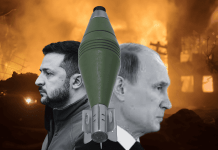The Taliban has announced a three-day cease-fire in Afghanistan during the festival of Eid al-Adha, starting from July 31. In a brief statement, Taliban’s spokesman Zabihullah Mujahed said “Mujahedeen” are directed to observe a cease-fire during the three days of Eid.
“Also, all the Mujahedeen [Taliban insurgents] must stay attentive that no one [among them] is allowed to go to enemy’s areas [government-controlled areas] and enemy elements are not allowed to enter our areas,” said the statement issued in Dari and Pashto languages.
Earlier in the day, Afghanistan President Ashraf Ghani pledged to release all 5,000 Taliban militants as part of the prisoner swap agreement signed by the US and Taliban and urged the militant group to get ready for talks in a week.
The Afghan government welcomed the Taliban’s announcement of a three-day cease-fire during the Eid holiday. “While it is a significant step, the Afghan people ask for a permanent cease-fire and imminent start of direct negotiations between the Afghan government and the Taliban,” said a statement issued by the presidential office.
“The Afghan government, in order to ‘ensure peace and stability and the realization of the long-standing aspirations of our people has fulfilled all its obligations in the peace process and has left no excuse for the continuation of violence’,” it added, as President Ghani instructed all the security and defence forces in the country to observe the three-day cease-fire and not to carry out any operations against the Taliban until the cease-fire is violated by the Taliban.
On his part, Mawlawi Hibatullah Akhundzada, the supreme leader of the insurgents in Afghanistan in his traditional message this year asserted earlier in the day that the group was “on the threshold of establishing an Islamic government” in the war-ravaged country.
“Our clear message remains that we are not looking for monopoly over power,” said Akhundzada in the message published by the group’s propaganda site al-Emarah in Dari, Pashto, Urdu, and English languages.
In May, the group had also announced a three-day ceasefire for the Muslim festival of Eid al-Fitr, which was reciprocated and welcomed by the Afghan government. This comes as fresh figures by the UN indicate raging violence in Afghanistan caused 3,458 civilian casualties — 1,282 killed and 2,176 injured — in the first half of this year.
The mid-year report by the UN Assistance Mission in Afghanistan (UNAMA) noted a “disturbing” rise in civilian casualties attributed to the Taliban with a total of 43% of civilian casualties, some 1,473 — 580 killed and 893 injured.
Civilian casualties attributed to government forces rose by 9% to hit 23% of the total number of civilian casualties in the first half of the year, reaching 789 people — 281 killed and 508 injured.
By Shadi Khan Saif




